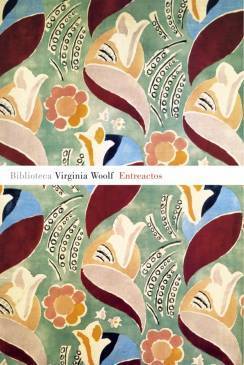What do you think?
Rate this book


208 pages
First published January 1, 1941
"For I hear music, they were saying. Music wakes us. Music makes us see the hidden, join the broken. Look and listen. See the flowers, how they ray their redness, whiteness, silverness and blue. And the trees with their many-tongued much syllabling, their green and yellow leaves hustle us and shuffle us, and bid us, like the starlings, and the rooks, come together, crowd together, to chatter and make merry while the red cow moves forward and the black cow stands still."
"Beyond the lily pool the ground sank again, and in that dip of the ground, bushes and brambles had mobbed themselves together. It was always shady; sun-flecked in the summer, dark and damp in winter. In the summer there were always butterflies; fritillaries darting through; Red Admirals feasting and floating; cabbage whites, unambitiously fluttering round a bush, like muslin milkmaids, content to spend a life there."And the characters of course, of which the women are the most appealing and intriguing, (according to a feminist study, the men in the novel belong to ‘exhausted patriarchy’) showing resembling traits to real women we ostensibly all know: the blatant, in-your-face voluptuousness of the buoyant Mrs. Manresa, turning on the old and the young men with her frivolous airs and graces; beautifully contrasted with the lyrical, melancholic sensuality of Isa Oliver, the daughter-in-law, jealous, “a captive balloon, pegged down on a chair arm by a myriad of hair-thin ties into domesticity”; Isa’s cynical, restless, frustrated, grumpy husband, Giles Oliver, the only person aware of the impending war; his rationalist father Bartholomew Oliver and his widowed sibling Lucy Swithin, a moving ageing woman, intensely spiritual, sensitive to natural mystic; William Dodge, the nervous companion of Mrs. Manresa, with “artistic leanings”; Miss la Trobe, the outcast artist and director of the play.
”The wild child, afloat once more on the tide of the old man's benignity, looked over her coffee cup at Giles, with whom she felt in conspiracy. A thread united them--visible, invisible, like those threads, now seen, now not, that unite trembling grass blades in autumn before the sun rises. She had met him once only, at a cricket match. And then had been spun between them an early morning thread before the twigs and leaves of real friendship emerge.”

[V. W.'s diary, Saturday 23 November] "I am a little triumphant about the book. I think its an interesting attempt in a new method. I think it's more quintessential than the others. More milk skimmed off. A richer pat, certainly fresher than that misery The Years. I've enjoyed writing almost every page."
”Did the plot matter? She shifted and looked over her right shoulder. The plot was only there to beget emotion. There were only two emotions: love; and hate. There was no need to puzzle out the plot. Perhaps Miss La Trobe meant that when she cut this knot in the centre?
Don’t bother about the plot: the plot’s nothing.”
“It’s hard to communicate anything exactly and that’s why perfect relationships between people are difficult to find.”
” Dear, how my mind wanders, she checked herself. What she meant was, change had to come, unless things were perfect; in which case she supposed they resisted Time. Heaven was changeless.”
“But we have other lives, I think, I hope,’ she murmured.'We live in others… We live in things.”